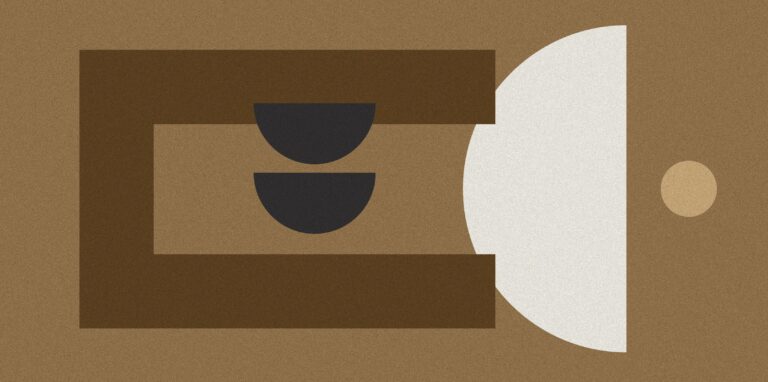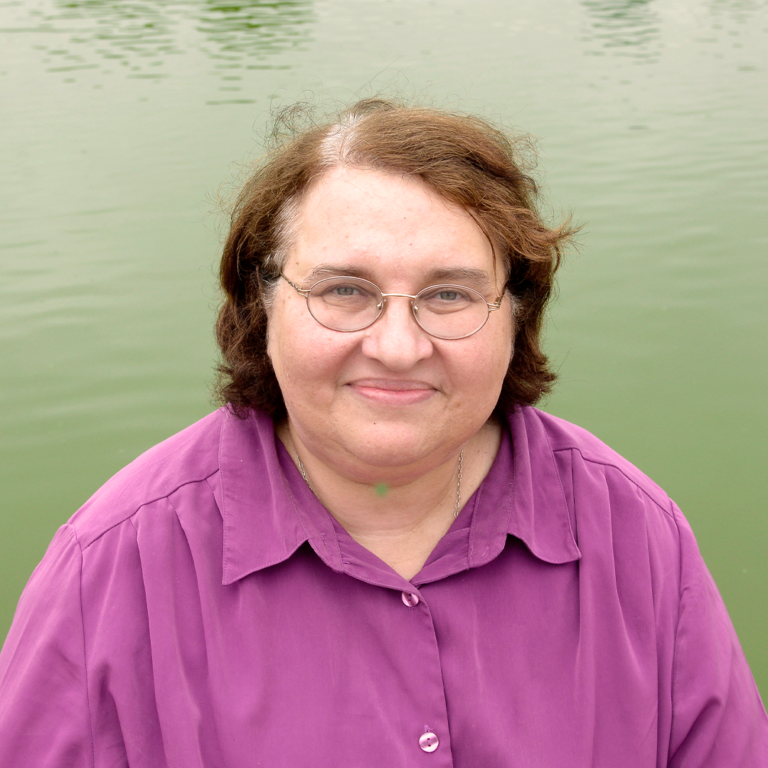Moral Imagination
With Jacqueline Novogratz
“Beneath the hard skills and firm strategic priorities needed to resolve our greatest challenges lies the soft, fertile ground of our shared humanity. In that place of hard and soft is sustenance enough to nourish the entire human family.”
| Question to Live
Who has accompanied me in rising to my best self? |
| Integration Step
“Like flowers breaking through granite, I’m going to choose hope every time.” |
| Heart of the Matter
The invitation here is two-fold. First, to flex the moral imagination of your hope muscle. The questions we instinctively ask of “what to do?” in western culture are questions of what and when and how much. Those are the serious hard questions we value and act on. Moral imagination calls us to ask why, and to what human purpose? And also, how much is enough? And the other calling here, the other invitation, is to get accompanied. Find others to walk alongside. Find others to walk alongside you. You don’t have to ask those questions alone or answer them alone or live them alone. In fact, if we try to do this transformation alone, it simply will not work. As Jacqueline says, these new ways of being, this new sensibility, has to be embedded within the structures themselves. This is a real shift, but taking it in really, truly, is a relief. Something can be created where people can remain whole and can grow and face what goes wrong, as well as what goes right, but not be alone and not be depleted. Or, certainly, be depleted at times, but have that well of friendship and support and being surrounded that means that there will be replenishment all along the way. |

Transcript
Krista Tippett: Welcome to a new course — and a new chapter — on practicing hope as a muscle.
I think all the time about the tectonic culture shifts that have been involved in moving from the world of the last century to this one. There are so many ruptures and reckonings vividly on the surface of our life together, in recent years. But below that there are also these fundamental ways of seeing and measuring and naming and doing that have to fail — that are failing. And they have to fail in order for us to navigate the complexity of the challenges before us, economic, political, racial, ecological. We did not come into this century with the forms we need to rise to what Naomi might call our best selves — as citizens, as inhabitants of planet Earth — to achieve something like flourishing, rather than mere survival.
One of the ways we have imagined solving problems and progress is that we’ve taken seriously this kind of 20th-century language, what we refer to as hard analysis and hard data and strategies and solutions.
But in this young century, every crisis, every challenge, political, economic, ecological, racial — again, those vast areas before us — these all run through human hearts and human lives and human well-being.
The 20th century called those things “soft,” and it tried to compartmentalize them. What would it mean, for us to become whole — to eliminate those strange distinctions we’ve made between “soft” and “hard,” between what is human and what is technical, and live into what would it mean to become whole human beings with whole institutions, with whole societies?
And the teacher I want to turn to in this session is Jacqueline Novogratz. And I would say that she is a friend and a colleague in asking that kind of question. And she describes the hope that is absolutely energizing and defining of her as a fiercely pragmatic, hard-edged hope.
She runs and created something called Acumen, which was one of the early impact investment experiments and has become this global exercise in what I would call creative, human-centered capitalism.
Another piece of vocabulary and wisdom practice that Jacqueline brings forth that is connected to moral imagination — and connected to how do we reimagine the nature of a solution — is the language of accompaniment. This is another word I use a lot. It’s spiritual language, but it’s also practical language.
So I’m going to play you a bit of my conversation with her. And just before we got into the part that you will hear, I read something back to her that she had written. She wrote, “This is the secret of accompaniment. I will hold a mirror to you and show you your value, bear witness to your suffering and to your light. And over time, you will do the same for me, for within the relationship lies the promise of our shared dignity and the mutual encouragement needed to do hard things. We are each other’s destiny. Beneath the hard skills and firm strategic priorities needed to resolve our greatest challenges lies the soft, fertile ground of our shared humanity. In that place of hard and soft is sustenance enough to nourish the entire human family.”
Novogratz: In my way of seeing the world, I think accompaniment is so critical, and again, I think it’s so hard. And when you do it best is when you’re not asking for thanks in return. I also, going back to this country, America, I also think, Krista, that it could be an organizing frame for how we think about a big part of our economy that we’re overlooking.
Tippett: Accompaniment could be an organizing frame?
Novogratz: I do. I do. I’ve seen it in companies in Africa and in South Asia — not just companies, in solutions, where, you know, you look at the HIV crisis and the AIDS crisis of southern Africa, and community members were trained in showing up for people with HIV-positive who had to take their antiretrovirals and combine that with eating high-caloric food. And so the community members were trained in the rudiments of health care, and they would show up, they would check on whether they had taken their meds, etc., etc., and they would also help stave off the isolation and loneliness that comes, often, with any chronic disease.
And so I’m seeing a generation of young people in the United States bring home some of these models, accompaniment models, which I think, given our opioid crisis, given our incarceration crisis, given our health care crisis, could play an extraordinarily powerful role: City Health Works, which trains women from the community in Harlem, New York — in, again, basic health skills. They show up and teach women who have chronic diseases like diabetes and hypertension simple things: how to go to the grocery store. They go on walks with them. They bring them into community. And they have so reduced the number of hospital visits that they’ve created a revenue stream from government to the organization, enough so that they can cover all their costs, become profitable. So, suddenly you have an economic and social model that has at the heart of it a healthier community, a more efficient government, and a stronger civil society.
That’s the reframe. And so we think about accompaniment as a beautiful soft skill — you and I know how hard it is, but beyond that, if we had the real moral imagination, we could begin to create economic models that made sense for all of us and not just for a chosen few of us.
Tippett: Again, aspirational and fiercely pragmatic. [laughs]
Novogratz: I love that. Thank you. [laughs]
Tippett: So if I ask you today, this week, what is making you despair, and where are you finding hope, what comes to mind right now? Of course, we’re talking about a hard-edged hope, not a squishy hope.
Novogratz: One of the biggest lessons of my life, Krista, has been that we can’t separate the world into monsters and angels. There are monsters and angels in each of us and that those monsters really are our broken parts — they’re our insecurities, they’re our fears, they’re our shames — and that in times of insecurity, it becomes really easy for demagogues to prey on those broken parts and sometimes make us do terrible things to each other.
We’re seeing that all over the world right now. And we have to fight against that. And that’s where the moral revolution becomes a matter of whether we choose to dive into the dark, the perilous path, or whether we choose to create a narrative and make that narrative real which is our shared destiny, the possibility of collective human flourishment, our repairing the Earth in ways that make it more beautiful — and the choice is ours. And so my hard-edged hope comes from having lived and worked in communities that have had to contend with both. And like flowers breaking through granite, I’m gonna choose hope every time. And I frankly — despite all the dark, I remain a stubborn, persistent, hard-edged, hopeful optimist.
Tippett: [laughs]
Novogratz: I do! And that’s my story, and I’m sticking to it.
Tippett: OK. [laughs]
Oh, I just love these lines — “like flowers breaking through the granite.” I mean, that is such a wonderful image for daring to be hopeful in a world like this.
The invitation here is twofold — to flex the moral imagination of your hope muscle, and I want to give you a brief definition. I mean, here’s how I think about what we’re talking about when we’re talking about moral imagination. And I like to start with what are the questions behind it? So I think the questions we instinctively ask of “what to do?” in western culture are questions of what and when and how much. Those are the serious hard questions we value and act on. I think moral imagination calls us to ask why, and to what human purpose? And also, how much is enough?
And the other calling here, the other invitation, is to get accompanied. Find others to walk alongside. Find others to walk alongside you. You don’t have to ask those questions alone or answer them alone or live them alone. In fact, if we try to do this transformation alone, it simply will not work. As Jacqueline says, these new ways of being, this new sensibility has to be embedded within the structures themselves. And taking this in — this is a real shift, but taking it in really, truly is a relief.
I experience, in young activists and social creatives and changemakers, I experience the pragmatism of their hope and their vision, and I hear them talking about accompaniment at every turn. And this as much as anything else gives me real hope in the possibility they are creating for long-term transformation, because accompaniment makes sustainability possible. Something can be created where people can remain whole and can grow and face what goes wrong, as well as what goes right, but not be alone and not be depleted — or certainly be depleted at times, but have that well of friendship and support and being surrounded that means that there will be replenishment all along the way.
You can contemplate that and begin to internalize it as you move through the coming days with the ritual of the Pause.
And I will see you next time.
